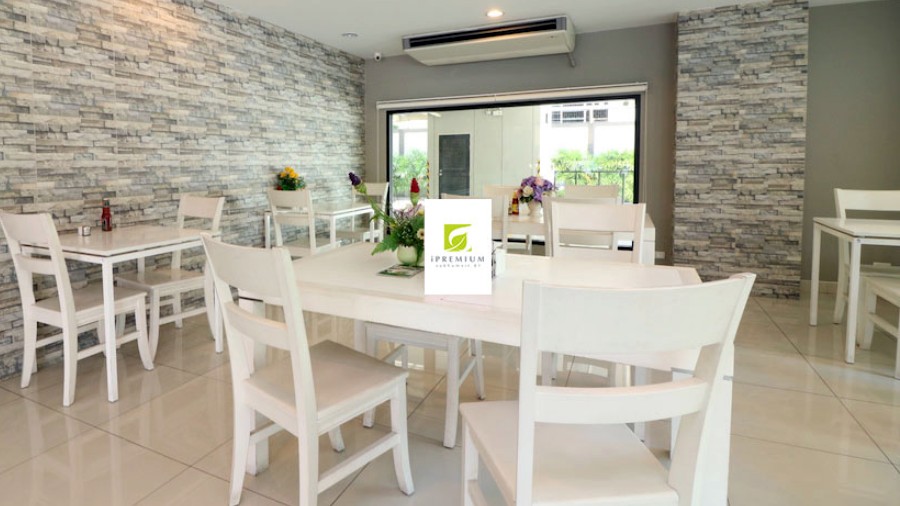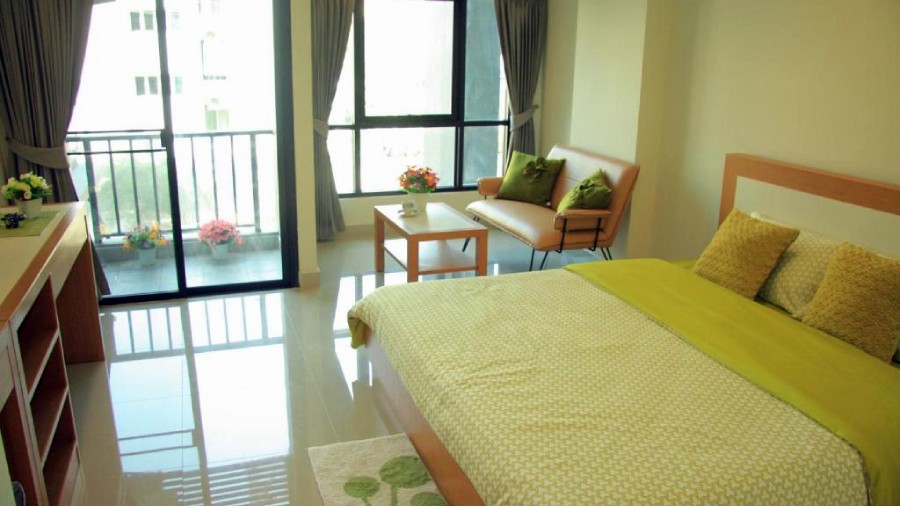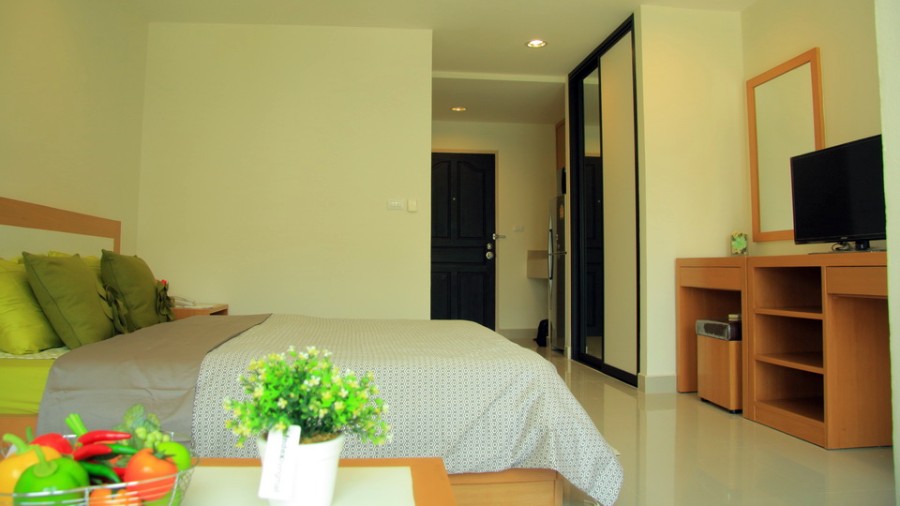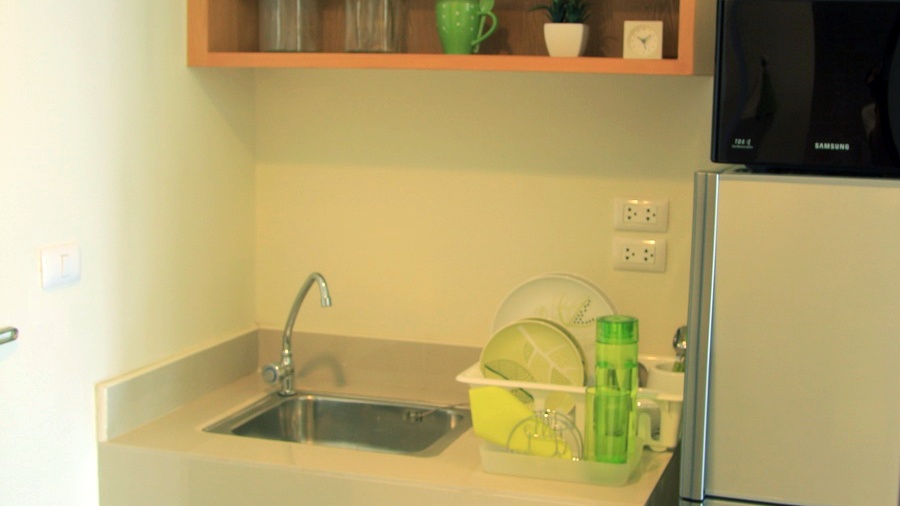DELTA Bangkok
Take the most advanced TEFL course in the world in Asia's most cosmopolitan city
STUDY IN BANGKOK
Your DELTA journey starts here
Vibrant, colourful, loud, smoky, bustling, exciting, turbo-charged, and conversely, often peaceful… Bangkok is a city that never gets boring and always gives you something exciting to see and do.
Discover Bangkok
Packed with temples, historical sites, bustling markets and street food stalls, Bangkok attracts almost 40 million tourists each year.
The international airport has flight connections to over 50 countries, and this makes Bangkok one of the easiest cities in South-east Asia to travel to.
Bangkok is a modern city with an efficient metro system, high-end malls, art galleries, trendy bars, restaurants and nightclubs, and it’s just a couple of hours away from national parks, beautiful beaches and rural landscapes.
With so much to offer, and with its relatively low-cost standard of living, it’s no wonder many choose Bangkok as the perfect place to take a DELTA course and experience Thai culture.

SCHOOL
Much more than a teacher training academy










International House is in the heart of the main Sukhumvit area in a modern office building with easy access to public transport, shopping malls, street markets, bars and restaurants.
We have been in Bangkok since 1999 and we’re part of the International House World Organisation with more than 140 schools in 45 countries.
- Central and convenient location
- Easy walk to the Skytrain and Metro systems
- Modern facilities with fully-equipped training rooms
- Computers, printers and Wi-Fi throughout the school
- Extensive resource library
We’re an approved Cambridge DELTA centre and offer a range of Cambridge teacher training and development courses.


WHY INTERNATIONAL HOUSE?
Teacher training specialists since 1962
Our story in teacher development started in 1962 when International House launched their first teacher training course in London, UK. A course that later became known as the Cambridge CELTA. Since then, thousands of teachers have chosen us for their training and development. Today, we are still one of the organisations that set the standards in teacher education.
ACCOMMODATION
We take care of your stay
Let us help you find the right place to live in Bangkok so that you can fully focus on your studies. With modern and affordable accommodation solutions close to the school, we have options to match your preferences and budget.
iPremium
Our most popular accommodation package offers an affordable stay without compromises. In a studio apartment just a short Metro ride from the school, you will have all the comforts needed to concentrate on your course.
- King-size bed, sofa, desk
- Air-conditioning, shower, linen and towels
- Sink, fridge, microwave and utensils
- Gym and restaurant
- Free WiFi
$415 USD 2 weeks (M1 course)
$935 USD 6 weeks (M2 course)
$1,200 USD 8 weeks (M1 + M2 course)
Cost for the full duration of the DELTA modules mentioned above.
Cost for the full duration of the DELTA modules mentioned above (check in one day before the course starts / check out the day after the course ends). Not inclusive of security deposit (14,000 Baht per month), key deposit (500 Baht), cleaning (600 Baht per service), utility bills (approx.1,000-2,000 Baht per month) to be paid directly to the accommodation provider and meals.
Mona Suite
Enjoy the convenience of a fully serviced apartment at a very competitive rate. Just a quick shuttle bus ride and a short walk away, you will be within minutes from the school and have all the quiet space you need for studying.
- King-size bed, sofa, desk
- Air-conditioning, shower and bathtub
- Full kitchen facilities and washing machine
- Swimming pool and gym
- Free WiFi
$980 USD per month
Cost for up to 30 nights. Not inclusive of deposit (5,000 Baht), utility bills (approx.1,000-2,000 Baht) and meals.






Furama Asok
With a rooftop jacuzzi, gym and sauna, this is the ideal package if you are looking for a boutique hotel experience. You will be within walking distance from the school and have all the privacy to focus on your work.
- King-size bed, sofa, desk
- Air-conditioning, shower and bathtub
- Roof-top jacuzzi, bar and restaurant
- Fitness centre and sauna
- Free WiFi
$1,400 USD per month
Cost for up to 30 nights. Not inclusive of meals.
DATES & FEES
Full-time or Part-time. Face-to-face or Online.
Choose a DELTA course that best suits your time, pace and preferred way of studying. Go for a full-time programme if you can drop everything and just focus on your studies or opt for a part-time course if you have to balance other personal commitments. Face-to-face at our centre or online from the comfort of wherever you are.
Full-time DELTA Courses
Timings reflect Thailand time (UTC +7), and prices are in US Dollars. If you wish to apply for more than 1 module, just apply for any module below and you will be able to add as many modules as you like on the application form.
COURSE
DATES / DURATION
DAYS / TIME
LOCATION
$ USD
NEW
- 25 May 2026 – 29 May 2026
- 1 week
- Monday to Friday
- 09.00 – 15.00
- 100% Online
$599
DELTA Module 2
- 13 Jul 2026 – 21 Aug 2026
- 6 weeks
- Monday to Friday
- 09.00 – 17.00
- 100% Online
$2,799
DELTA Module 1
- 05 Oct 2026 – 16 Oct 2026
- 2 weeks
- Monday to Friday
- 09.00 – 15.00
- Chiang Mai
$1,099
DELTA Module 2
- 19 Oct 2026 – 27 Nov 2026
- 6 weeks
- Monday to Friday
- 09.00 – 17.00
- Chiang Mai
$2,799
Please note that course fees do not include Cambridge assessment fees. Fees are as follows:
– Module 1 > 156 GBP
– Module 2 > 194 GBP
– Module 3 > 108 GBP
These are paid directly to Cambridge and are the same at any Cambridge centre around the world. If you wish to sign up for the DELTA Module 1 exam only (i.e. without enrolling on the preparation course), please contact us.
Part-time DELTA Courses
Timings reflect Thailand time (UTC +7), and prices are in US Dollars. If you wish to apply for more than 1 module, just apply for any module below and you will be able to add as many modules as you like on the application form.
COURSE
DATES / DURATION
DAYS / TIME
LOCATION
$ USD
DELTA M2 Builder
NEW
- 14 Jan 2026 – 18 Mar 2026
- 10 weeks
- Wednesday
- 18.30 – 20.00
- 100% Online
$599
DELTA M2 Builder
NEW
- 13 May 2026 – 15 Jul 2026
- 10 weeks
- Wednesday
- 18.30 – 20.00
- 100% Online
$599
Please note that course fees do not include Cambridge assessment fees. Fees are as follows:
– Module 1 > 156 GBP
– Module 2 > 194 GBP
– Module 3 > 108 GBP
These are paid directly to Cambridge and are the same at any Cambridge centre around the world. If you wish to sign up for the DELTA Module 1 exam only (i.e. without enrolling on the preparation course), please contact us.
OFFER
Free 'Insight into Module 3' programme worth $150 USD
Enrol on DELTA Module 1 and Module 2 (full-time) together and attend a free 2-day introductory course on Module 3. Learn the possible specialisms for the assignment, become familiar with the structure of the essay and enjoy private consultations to help you decide your area of research.
CONTENTS
What's in the DELTA course?
DELTA is an advanced teaching qualification that blends theory and practice to help you develop a deeper understanding of effective principles and practices in English language teaching. It is a modular course that covers a wide range of teaching techniques and methodologies, as well as assessment, syllabus design, and materials development.
The Cambridge Delta (Diploma in English Language Teaching to Adults) is a highly respected professional development program designed for experienced language teachers.
It is a modular course that covers a wide range of teaching techniques and methodologies, as well as assessment, syllabus design, and materials development.
– 3 modules that can be taken in any order
– practical focus on teaching and learning
– full-time and part-time courses
– face-to-face or 100% online
The program is moderated by Cambridge Assessment English and it is recognized internationally as a mark of professional competence in the field of English language teaching.
Successful completion of the Cambridge Delta provides a valuable addition to a teacher’s CV and can lead to career progression opportunities, such as teaching in higher education institutions, management positions, and teacher training roles.
When applying for the DELTA course, you should:
– be over 18
– have a standard of education equivalent to that required for entry into higher education (you do not need a degree)
– have at least 1 year of teaching experience
– have a level of English equivalent to CEFR C1 or above if English is not your first language (you do not need to present a language proficiency certificate)
– have a strong desire for professional development
These requirements are checked during the application process through an interview.
Module One: Understanding Language, Methodology and Resources for Teaching
This module focuses on the theoretical aspects of teaching and provides teachers with an in-depth understanding of the principles and practices of English language teaching. It covers areas such as language systems, teaching methodologies, and resources for teaching.
Topics include:
– theoretical perspectives on language acquisition and language teaching
– different approaches and methodologies, including current developments
– language systems and learners’ linguistic problems
– language skills and learners’ problems
– knowledge of resources, materials and reference sources for language learning
– key concepts and terminology related to assessment
Assessment: Written exam of two 90-minute papers. The exam takes place twice a year, in June and December, and can be taken at our center or any other center of your choice.
For a detailed description of MODULE 1 contents, assessment and outcomes, please visit the Cambridge website.
DELTA M1 Booster: Sharpening Your Exam Skills
This is a focused preparation course developed by International House Bangkok to help candidates maximise their performance in the DELTA Module 1 written examination. It’s a programme specially designed for teachers who may have already taken a full preparation course in the past, or have studied independently, and now want targeted practice to refine their skills before the exam. The M1 Booster course provides intensive exposure to exam techniques, strategies, and mock tests that will help candidates approach the paper with greater speed, accuracy, and confidence.
Key features
– receive expert input on exam strategies and time-management techniques for all DELTA Module 1 tasks
– take multiple timed practice activities and full-length mock papers, with feedback based on exam criteria
– develop strategies for tackling key areas such as terminology, analysis of learner data, text and task analysis, and error analysis
– review and reinforce knowledge of methodology, language systems, and skills through exam-focused tasks
– access our dedicated Moodle site with additional practice materials, guidance, and tutor-monitored discussion forums
The DELTA M1 Booster course is an opportunity to consolidate your knowledge, fine-tune your exam strategies, and gain hands-on practice with authentic tasks under exam conditions. The focus is purely on performance and confidence, so that you enter the DELTA Module 1 exam ready to achieve your best results.
DELTA M2 Builder: Getting Ready for Module 2
This is a unique preparation course developed by International House Bangkok to help candidates maximise their chances of completing Module 2 successfully. It’s a programme specially designed for teachers who don’t feel 100% ready to be assessed and would like pre-course instruction, feedback and support to increase their level of competence in preparation for Module 2. It’s a course also intended to help teachers who may have started preparing for Module 2 independently but feel the need to receive exposure and guidance before submitting their portfolios for assessment.
Key features
– receive input on the key areas of the DELTA Module 2 syllabus, including guidance and advice regarding core and specialised reading
– write up to 2 background essays (this is a part of each lesson on DELTA Module 2) and receive detailed feedback
– design up to 2 lesson plans and receive expert input on areas for improvement
– teach 1 observed lesson (in your own context) online /or recorded and receive feedback according to the DELTA Module 2 assessment criteria
– access our dedicated Moodle site with additional input, guidance and forum facility monitored by DELTA tutors
– discuss things in more detail in individual tutorials with DELTA tutors (optional, and for an additional fee)
The M2 Builder course is an opportunity to experience and understand the format, contents and evaluation of the DELTA Module 2 without the stress of being formally assessed. The focus is purely on development and support to help you complete Module 2 with success.
Module Two: Developing Professional Practice
This module focuses on the practical aspects of teaching and provides teachers with the opportunity to apply their theoretical knowledge to their teaching practice. It covers areas such as lesson planning, teaching observation, and reflection on teaching.
Topics include:
– the language learner and the language learning context
– preparation for teaching English language learners
– evaluating, selecting and using resources and materials
– managing and supporting learning
– evaluation of lesson preparation and teaching
– observation/evaluation of other teachers’ lessons
– professionalism and opportunities for professional development
Assessment: Portfolio of coursework, including a professional development assignment, background essays and assessed teaching practice. As well as observing lessons, teachers prepare, teach and evaluate four lessons – one is externally assessed by a Cambridge English assessor.
For a detailed description of MODULE 2 contents, assessment and outcomes, please visit the Cambridge website.
Module Three: Extending Practice and ELT Specialism
This module focuses on the professional development and specialization of teachers, providing them with the opportunity to explore a specific area of ELT that interests them. It covers areas such as teaching young learners, testing and assessment, teaching English for specific purposes, ELT management, etc.
Candidates can choose from two options:
Option 1: Extending practice and English language teaching specialism
This module focuses on needs analysis, syllabus design, course planning and assessment in the context of a selected specialism.
Option 2: English Language Teaching management
This module focuses on situation analysis and planning, and implementing change in the context of a selected management specialism.
Assessment: Extended written assignment of 4,000–4,500 words, focusing on the teacher’s chosen specialist area of teaching (Option 1) or their chosen ELT management specialism (Option 2). The extended written assignment can be submitted online twice a year, in June and December, through our center or any other center of your choice.
For a detailed description of MODULE 3 contents, assessment and outcomes, please visit the Cambridge website.
TRAINERS
A talented, dynamic and passionate team
Meet the trainers that make our teacher training programmes stand out from the crowd. A team of highly qualified and enthusiastic teachers dedicated to motivating and supporting you throughout your learning journey.
DELTA FAQs
All your questions answered
DELTA (Diploma in Teaching English to Speakers of Other Languages) is an advanced teaching qualification that blends theory and practice to help you develop a deeper understanding of effective principles and practices in English language teaching. It’s the ideal TEFL/TESOL course if you already have at least one years’ teaching experience and feel ready for a professional specialization or career advancement. The certificate is awarded by Cambridge English, which is part of the University of Cambridge, and it’s recognised by private organisations and public institutions worldwide.ely taken English teaching qualifications in the world. It can provide you with the skills, knowledge and hands‑on practice to follow a rewarding career in teaching, either at home or abroad. The certificate is awarded by Cambridge English, which is part of the University of Cambridge, and it’s recognised by private organisations and public institutions worldwide.
Yes. DELTA is assessed, moderated and awarded by Cambridge English, part of the University of Cambridge. DELTA is also accredited by Ofqual (the regulator of qualifications, examinations and assessments in England) at level 7 on the National Qualifications Framework and it’s a postgraduate diploma, which equates to Master’s level in terms of level of difficulty. CELTA is accepted throughout the world by organisations and institutions which employ English language teachers.
The Cambridge DELTA (Diploma in Teaching English to Speakers of Other Languages) is an advanced blend of theory and practice that helps teachers deepen their understanding of teaching and learning processes, and guide them in their professional development. DELTA is designed for more experienced teachers who intend to advance their careers and take more senior and specialized roles.
The Cambridge CELTA (Certificate in Teaching English to Speakers of Other Languages) is a practical TEFL qualification that gives essential knowledge, hands-on teaching experience and classroom confidence to qualify as a teacher of English as a second or foreign language. CELTA is designed for individuals with no previous teaching experience or teachers who want to gain a formal qualification and may want to progress to more advanced qualifications.
Both qualifications are regulated at Level 7 of the UK on the National Qualifications Framework (that is, one level above a university degree). The main difference is that DELTA is more practical and generally serves as a professional development course. An MA is more theoretical and research-based and more focused on academic achievement.
DELTA is a professional development qualification for experienced English language teachers. It is designed for individuals who have already completed a TEFL qualification, such as the Cambridge CELTA, and have at least 1 year of teaching experience. The DELTA is aimed at teachers who wish to deepen their understanding of teaching and learning processes, and who want to progress to more advanced and specialized roles in the field of English language teaching. The DELTA is suitable for those who are looking to advance their careers in teaching, curriculum development, teacher training, materials writing, and other related fields.
No. Although it is desirable to have already obtained a TEFL qualification like the CELTA, it is not a requirement. Nor it is having a university degree. Entry requirements are limited to being at least 18 years old, having a standard of education equivalent to that required for entry into higher education (you do not need a degree), having at least 1 year’s teaching experience and having a proficient level of English (equivalent to CEFR C1 or above if English is not your first language). Of course, you also need to have a strong desire for professional development.
No. You just need to have a level of English equivalent to CEFR C1 or above if English is not your first language (you do not need to present a language proficiency certificate).
Yes. You should have at least 1 year of teaching experience.
No. You don't need to be an expert as long as you know how to use familiar computer applications for video calls (e.g. Skype, Zoom, etc.), office work (e.g. Word, Power Point, etc.) and file sharing (e.g. iCloud, Google Drive, etc.). Some training is provided and your tutors are always there to support you. In terms of equipment, you only need a computer, a microphone, a webcam and a stable internet connection.
There’s no difference except for the mode of studying and teaching. In fact, the certificate doesn’t mention whether you completed the course face-to-face or online. This is because the syllabus and the assessment are exactly the same. Of course, if you take DELTA online you attend classes and teach your students on Zoom. From wherever you are!
Only the intensity! Both options follow the same syllabus and assessment, just at a different pace.
For example, the full-time option for Module 2 lasts 6 weeks (from Monday to Friday) and it’s ideal if you have the time to drop everything and fully focus on your course. The same part-time option lasts 15 weeks (on Sundays) and it’s convenient if you have to manage multiple commitments at home, work or school.
Module One: Understanding Language, Methodology and Resources for Teaching
This module focuses on the theoretical aspects of teaching and provides teachers with an in-depth understanding of the principles and practices of English language teaching. It covers areas such as language systems, teaching methodologies, and resources for teaching. This module is assessed through a written exam.
Module Two: Developing Professional Practice
This module focuses on the practical aspects of teaching and provides teachers with the opportunity to apply their theoretical knowledge to their teaching practice. It covers areas such as lesson planning, teaching observation, and reflection on teaching. This module is assessed through a portfolio of coursework, which includes observations of teaching practice, lesson plans, and written assignments.
Module Three: Extending Practice and ELT Specialism
This module focuses on the professional development and specialization of teachers, providing them with the opportunity to explore a specific area of ELT that interests them. It covers areas such as teaching young learners, testing and assessment, teaching English for specific purposes, ELT management, etc. This module is assessed through a written assignment, which is based on a specific area of ELT specialization.
The 3 modules can be taken in any order and they are assessed separately.
Module One: Understanding language, methodology and resources for teaching
This module focuses on the background to teaching and learning English in a range of contexts.
Topics include:
- theoretical perspectives on language acquisition and language teaching
- different approaches and methodologies, including current developments
- language systems and learners’ linguistic problems
- language skills and learners’ problems
- knowledge of resources, materials and reference sources for language learning
- key concepts and terminology related to assessment
Assessment: Written exam of two 90-minute papers. The exam takes place twice a year, in June and December, and can be taken at our center or any other center of your choice.
For a detailed description of MODULE 1 contents, assessment and outcomes, please visit the Cambridge website.
Module Two: Developing professional practice
This module focuses on the principles and practice of planning and teaching.
Topics include:
- the language learner and the language learning context
- preparation for teaching English language learners
- evaluating, selecting and using resources and materials
- managing and supporting learning
- evaluation of lesson preparation and teaching
- observation/evaluation of other teachers’ lessons
- professionalism and opportunities for professional development
Assessment: Portfolio of coursework, including a professional development assignment, background essays and assessed teaching practice. As well as observing lessons, teachers prepare, teach and evaluate four lessons – one is externally assessed by a Cambridge English assessor.
For a detailed description of MODULE 2 contents, assessment and outcomes, please visit the Cambridge website.
No, unlike with other providers, you don’t need a local tutor if you study with us. Our online DELTA Module 2 course includes all the necessary teaching practice assessments conducted online, whether you decide to teach our learners online, or your own on a face-to-face basis. Our DELTA tutors will observe, evaluate and provide feedback on your lessons remotely. This allows you to meet Cambridge's assessment criteria without the need for a face-to-face local tutor.
Module Three: Extending Practice and ELT Specialism
This module focuses on the professional development and specialization of teachers, providing them with the opportunity to explore a specific area of ELT that interests them. It covers areas such as teaching young learners, testing and assessment, teaching English for specific purposes, ELT management, etc.
Candidates can choose from two options:
Option 1: Extending practice and English language teaching specialism
This module focuses on needs analysis, syllabus design, course planning and assessment in the context of a selected specialism.
Option 2: English Language Teaching management
This module focuses on situation analysis and planning, and implementing change in the context of a selected management specialism.
Assessment: Extended written assignment of 4,000–4,500 words, focusing on the teacher’s chosen specialist area of teaching (Option 1) or their chosen ELT management specialism (Option 2). The extended written assignment can be submitted online twice a year, in June and December, through our center or any other center of your choice.
For a detailed description of MODULE 3 contents, assessment and outcomes, please visit the Cambridge website.
No. The modular format of the course provides flexible entry points. You may choose to enrol in the 3 modules together or separately, in any order at any time.
No. You can take the modules in any order you like and at the pace you prefer. Each modules is assessed separately and you receive a certificate for each module you pass.
No. There is no time limit and you can take the 3 modules at your convenience. You can complete the 3 modules with any gap of time between the completion of each module.
No. You can take each DELTA module at a different centre.
As far as Cambridge Assessment English is concerned, the ‘DELTA’ ceased to exist in 2008 when this qualification was replaced by the current 3 DELTA modules. However, the term ‘the DELTA’ is still widely used by employers and teachers alike. It is important to realize that you will receive a separate authorized certificate for each module that you have passed, enabling you to say that you have, for example, DELTA Module 1 and DELTA Module 2. When you have passed all three certificates, Cambridge Assessment English will issue on request an ‘overarching certificate’, with records of the dates when you passed each of the 3 modules in one handy document. What exactly employers mean by ‘DELTA-qualified’ teachers may vary from place to place and if you think it may be important, you should ask. Probably a majority of employers are most interested in whether you have Modules 1 and 2 and less interested in whether you have Module 3, unless they are looking for someone with a particular specialist knowledge.
You can prepare for DELTA Module 1 at one centre and be assessed at another centre. However, if you are an external candidate, you will have to take the responsibility for contacting the centre yourself (e.g. us) and you will need to pay the Cambridge assessment fee to that centre at least 6 weeks before the date of the assessment.
Yes, this is possible. If you wish to sign up for the DELTA Module 1 exam only, just drop us a message and we will take care of the enrolment. Please note the payment for the exam must be received at least 6 weeks before the assessment date. Please note that external candidates are also charged an additional 4,000-THB invigilation fee.
DELTA Module 1 exams are taken in-person and are always held on the first Wednesday in June and December of every year.
Results for all 3 modules are released normally on the second Friday in August for the June session and on the second Friday in February for the December session.
Quite busy! A typical day on the full-time course will involve input sessions, lesson planning, teaching practice lessons, lesson observations, feedback on practice, consultation on assignments, feedback on assignments, etc. The timetable may vary depending on the schedule of our teaching practice classes. Contact hours usually start at 9.00 and end at approximately 17.30. However, there is a fair amount of independent work which you have to complete after contact hours. You need to be prepared to work long hours for the entire duration of the course.
On the part-time course, the activities are the same, just at a different pace.
No. A student/educational visa is not necessary for a short course like DELTA (54 days from beginning to end). A student/educational visa is required if you study in Thailand for more than 3 months. However, depending on your country of origin, you may need to apply for a 60-day tourist visa at a Thai embassy/consulate in your country. Most of our overseas candidates enter and leave Thailand on this type of visa as it covers the entire duration of the course and their stay.
As different countries have different immigration agreements with the Thai government, we suggest checking with the Thai embassy/consulate in your country to find out whether you can be granted a tourist visa on arrival that covers the duration of the course and your stay, or you need to apply for it in advance.
What’s important is that you have a valid visa for the entire duration of the course and your stay.
Having the DELTA can open up a wide range of job opportunities worldwide. Some of our past DELTA graduates moved on to positions such as:
- senior teacher or team leader in a language school
- curriculum developer or materials writer for a language school or publisher
- teacher trainer or teacher development coordinator for a language school or other organisation
- academic manager or Director of Studies for a language school
- ELT consultant or advisor for a government agency or international organisation
- lecturer or tutor in TESOL/TEFL at a university or college
Additionally, having a DELTA can also increase your chances of getting a higher salary in your current position.
It's very straightforward and there are no deadlines! Just choose your preferred course (you can choose as many modules as you like on the application form) and send your application through our website. No payment is required at this stage. After we receive it, we will send you a pre-interview tasks which you will have to complete before the selection interview. You will attend an online interview with a DELTA trainer who will ask you about the pre-interview task and your motivation for wanting to take the course. This is to ensure that the course is a suitable match with your needs and wants. If you are accepted, you can start the course!
Payments can be made in cash at our school, by bank transfer or online by debit/credit card. Please visit our Payments page for more information.
Yes. Our published course fees do not include Cambridge assessment fees. Fees are as follows:
- Module 1 > 151 GBP
- Module 2 > 188 GBP
- Module 3 > 105 GBP
These fees are paid directly to Cambridge and are the same at any Cambridge centre around the world.
Refunds may be available depending on the circumstances of your cancellation. Please refer to our Terms and Conditions page to view our cancellation and refund policies.
Simply because we are one of the most reputable organisations in the world in English language teaching and have been providing teacher training and development courses for over 60 years. Our story started in 1962 when International House launched their first teacher training course in London, UK. A course that later became known as the Cambridge CELTA. Since then, thousands of teachers have chosen us for their training and development. Today, we are still one of the organisations that set the standards in teacher education.
DELTA GRADUATES
Your experience matters
The course is very comprehensive in preparing candidates and I found it very useful. It improved my ability to understand my own teaching and adjust it to better cater to my learners' needs. The online format worked well for me, and I have to thank the trainers for their availability. In and out of the classroom.
A wonderful school and an unforgettable experience. The setting and accommodation in Chiang Mai is very convenient and the course is very well structured. It's intense but the fact that you live on campus means that you can fully focus on the course without unnecessary distractions.
The DELTA completely revolutionised my thinking and the way I look at lessons. I understand second language acquisition much better and I am able to design lessons that truly push the learners' boundaries. I wish I had done it earlier! I'll definitely be back for Module 3. Thank you everyone at IH.
It's been hard work, with ups and downs, but definitely something I'd recommend to any teacher wanting to understand teaching and learning better. As soon as I finished the course, I was able to join the teacher-training department of my school, something I had been wanting for years.
Let us help you find the right DELTA course
Contact us today to speak to a DELTA course advisor. We are here to help you find a course that matches your goals.




















